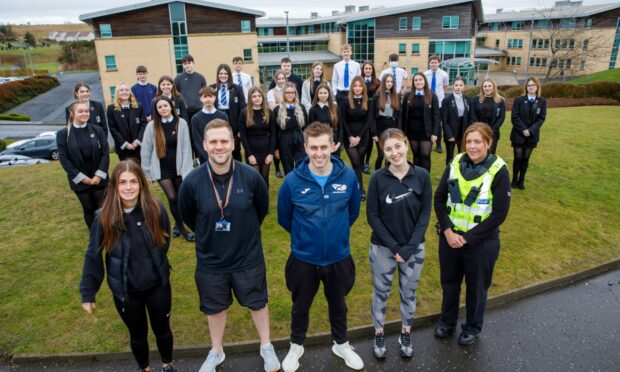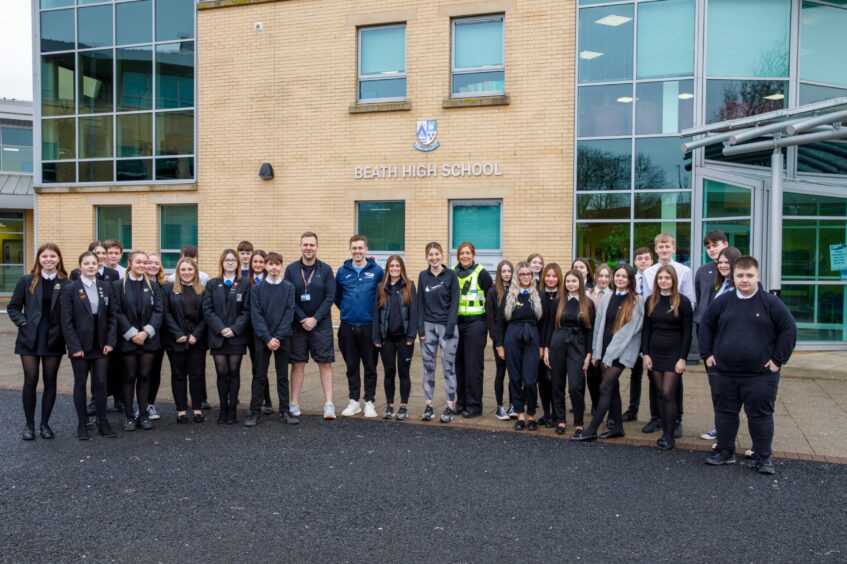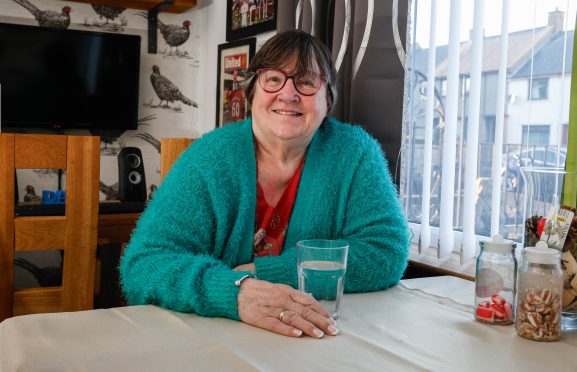If you saw someone being pushed, shoved or even struck, would you walk on by or stop and help?
That’s a scenario put to young people in school in an education programme designed to challenge the attitudes, beliefs and cultural norms that underpin gender-based violence, bullying and other forms of abuse.
Mentors in Violence Prevention (MVP) is run in schools across Scotland, and Beath High School, in Fife, is among the latest to benefit.
The programme aims to empower individuals to become ‘active bystanders’ able to support and challenge peers in a safe way.
Violence against women escalating
Violence against women remains a huge and growing problem in Scotland, with police recording 65,251 incidents of domestic violence in 2020/21 – the figure having risen for the fifth year in a row.
Four in five of the incidents involved a female victim and male accused.
Education in schools to address systematic inequality, attitudes and assumptions which contribute to abuse is seen as crucial to the Scottish Government’s strategy to eradicate violence against women and girls.
MVP was launched in Scotland in 2012 and addresses behaviour including name-calling, sexting, controlling behaviour, sexual harassment and consent.
Beath High School signed up last year to make its school environment safer and to shape the adults its pupils become.
As MVP mentors, our aim is to ensure our school is a safe and comfortable place…”
Livia Douglas, S5
Livia Douglas, an S5 pupil, is among the Cowdenbeath school’s first mentors, having been trained by the school’s MVP staff team in February.
She and fellow mentors in S4 and S5 will deliver workshops to younger peers, aimed at equipping them with the confidence to speak up when it is safe to do so when they see negative behaviour which might normally go unchallenged.
She said: “As MVP mentors, our aim is to ensure our school is a safe and comfortable place where people can learn, improving their confidence and leadership skills.
“I enjoyed the MVP training process and I look forward to using this new knowledge to support younger pupils in Beath.
“The programme covers a lot of interesting, relevant topics that impact on school pupils and as mentors we now have a lot of information about these topics and the bystander effect to safely intervene and help others.”
Health and wellbeing principal teacher David Lowrie oversaw the introduction of MVP to Beath.
This is education-based prevention to tackle what are wider societal issues.”
Health and wellbeing principal teacher David Lowrie
He, two other staff members, the local Active Schools coordinator and a community police officer were trained by Education Scotland to deliver MVP in November.
He said: “We want our young people to become adults who are more informed about these topics, about sexual violence, language associated with homophobia, various different matters.
“This is education-based prevention to tackle what are wider societal issues.”
For example, he said: “If you see a fight rather than gather round it, film it, tell a member of staff what’s happening.
“Things aren’t going to change overnight but hopefully the effects of this are long-term and lasting.”
MVP training across Scotland
More than half (55%) of Scottish secondary schools are involved with MVP.
According to Education Scotland, staff confidence in teaching young people about gender-based violence increases significantly through the programme.
Education Scotland chief executive Gayle Gorman said: “Mentors in Violence Prevention (MVP) is a peer education programme providing young people with the language and framework to explore and challenge the attitudes, beliefs and cultural norms that underpin gender-based violence, bullying and other forms of abuse.
“The programme ‘scenarios’ explore a range of behaviours including name-calling, sexting, controlling behaviour and harassment, and use a ‘bystander’ approach where individuals are not considered potential victims or perpetrators, but empowered and active bystanders with the ability to support and challenge their peers in a safe way.”
Read our special series in bullying in schools:
-
- ‘Mummy I just want to die’: Devastating words of Fife girl, 7, after years of bullying
- Bullying in schools: Our survey reveals 9 in 10 parents do not think schools can effectively tackle it
- Bullying advice: How to help children who are being bullied
- Types of bullying: What is classed as physical, sexual and prejudicial bullying?
- Devastating effects of bullying on children in the short and long term
- OPINION: I attempted suicide after years of bullying – schools need to take it seriously
- Autistic Angus teen terrified to go to school as pupil threatens to ‘kill him
- How to report bullying to schools and the police
- Mum says alleged assault of her 5-year-old son shows bullying happens at any age
- Race, religion and sexual orientation among main reasons for school bullying in Tayside and Fife
- Relentless bullying makes Autistic Angus teen pull her own hair out and say she wants to die











